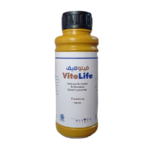VitoLife: The Antioxidant Solution for Healthier, Stronger Animals
In the world of animal husbandry, the health and vitality of livestock are paramount. Farmers and breeders are constantly seeking innovative solutions to ensure their animals grow stronger, stay healthier, and produce higher yields. VitoLife, a supplement that offers a comprehensive approach to boosting the overall health and growth of poultry, rabbits, and ruminants. By leveraging the power of natural ingredients like cinnamaldehyde, oregano, and capsaicin oils, it is the ultimate antioxidant solution for livestock health.
The Power of Cinnamaldehyde, Oregano, and Capsaicin Oils
VitoLife is formulated with a high concentration of cinnamaldehyde, oregano, and capsaicin oils. These natural compounds are well-known for their potent health benefits and have been used in various traditional remedies for centuries. Here’s how these ingredients contribute to the overall efficacy of VitoLife:
- Immune Response Improvement: Cinnamaldehyde, derived from cinnamon bark, is known for its immune-boosting properties. It has been shown to enhance the body’s natural defense mechanisms, making animals more resilient to diseases and infections. When combined with the antibacterial and antiviral properties of oregano oil, providing a powerful shield against a range of pathogens.
- Support in Cases of Immunosuppression: Immunosuppression in livestock can lead to severe health issues, reducing their productivity and longevity. The combination of cinnamaldehyde and capsaicin oils helps combat immunosuppression by stimulating the immune system and promoting a faster recovery process, ensuring animals remain healthy and productive.
- Combating Viral and Bacterial Infections: Oregano oil, a key ingredient in VitoLife, contains high levels of carvacrol and thymol, which are known for their strong antibacterial and antiviral effects. These compounds work synergistically with cinnamaldehyde and capsaicin to provide a comprehensive defense against a wide range of viral and bacterial infections, reducing the need for antibiotics and other chemical treatments.
- Antioxidant Protection: Oxidative stress is a significant concern in livestock, leading to cellular damage and decreased performance. VitoLife’s potent antioxidant properties, derived from its natural ingredients, help neutralize harmful free radicals, protecting the animals’ cells from oxidative damage and promoting overall health.
- Digestive System Health and Safety: The digestive system plays a crucial role in the overall well-being of animals. It supports digestive health by reducing inflammation and promoting a healthy gut microbiome. The anti-inflammatory properties of oregano and the soothing effects of capsaicin help maintain the integrity of the digestive system, ensuring optimal nutrient absorption and reducing the risk of digestive disorders.
- Growth Promotion and Feed Conversion Ratio (FCR) Improvement: One of the most significant benefits of VitoLife is its ability to promote growth and improve feed conversion ratios (FCR). By enhancing the efficiency with which animals convert feed into body mass, it also helps farmers achieve better growth rates and higher yields, ultimately leading to increased profitability.
Farmers and breeders looking to improve the health and productivity of their livestock can trust VitoLife as a safe, effective, and natural solution. With its comprehensive benefits ranging from immune support to growth promotion, it is an essential addition to any animal husbandry practice.
Increased Disease Prevalence and Parasite Distribution
Climate change is also altering the distribution and prevalence of diseases affecting poultry and farm animals. Warmer temperatures and changing precipitation patterns are creating ideal conditions for the spread of diseases such as avian influenza, Newcastle disease, and African swine fever. Additionally, the changing climate is altering the distribution of parasites, such as ticks and mosquitoes, which can transmit diseases like tick-borne diseases and trypanosomiasis.
Impact on Feed Quality and Availability
Climate change is also affecting the quality and availability of feed for poultry and farm animals. Changes in temperature and precipitation patterns are altering the growth and yield of crops, leading to reduced feed quality and availability. This can result in reduced animal productivity, increased mortality, and decreased fertility.
Consequences for Animal Welfare and Human Health
The impact of climate change on poultry and farm animals has significant consequences for animal welfare and human health. Animal welfare is compromised when animals are subjected to heat stress, disease, and poor living conditions. This can lead to increased stress, suffering, and mortality.
Furthermore, the impact of climate change on animal health can have significant consequences for human health. The increased prevalence of zoonotic diseases, such as avian influenza and swine influenza, can pose a significant risk to human health. Additionally, the decreased productivity and availability of animal products can lead to food insecurity and economic instability.
Solutions and Mitigation Strategies
While the impact of climate change on poultry and farm animals is significant, there are several solutions and mitigation strategies that can be employed to reduce the risks. These include:
- Improved housing and ventilation systems: Providing animals with adequate housing and ventilation systems can help reduce heat stress and improve animal welfare.
- Disease surveillance and management: Implementing effective disease surveillance and management strategies can help reduce the prevalence of disease outbreaks.
- Climate-resilient breeds: Developing climate-resilient breeds that are better adapted to changing climate conditions can help improve animal productivity and welfare.
- Sustainable feed production: Promoting sustainable feed production practices can help reduce the environmental impact of feed production and improve feed quality.
- Climate-smart agriculture: Implementing climate-smart agriculture practices, such as agroforestry and conservation agriculture, can help reduce the environmental impact of it and improve animal productivity.
By implementing solutions and mitigation strategies, such as improved housing and ventilation systems, disease surveillance and management, climate-resilient breeds, sustainable feed production, and climate-smart agriculture, we can reduce the risks and improve the health and welfare of poultry and farm animals. It is essential that we act now to address climate change’s impact on animal health and ensure a sustainable and food-secure future.
Probiotics vs. Antibiotics: What’s Best for Your Flock?
Bost-K3 Plus is a premium Vitamin K3 supplement designed for poultry, rabbits, and ruminants. It pre
Albecorin: Broad-Spectrum Dewormer for Livestock
Bost-K3 Plus is a premium Vitamin K3 supplement designed for poultry, rabbits, and ruminants. It pre
Mega Life: Enhance Respiratory Strength for Healthier Poultry
Keeping your poultry healthy and thriving is essential for a successful operation. Mega Life is here


